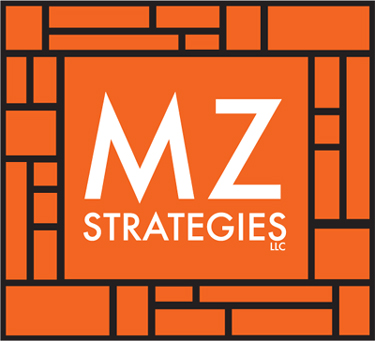Mapping America's Transportation Transformation
The Transportation Transformation Project page provides key documents prepared for this year-long strategic planning and research study funded by Ford, Surdna and Rockefeller Foundations and TransitCenter, including the final report with recommendations for funders and advocates.
Throughout 2014, MZ Strategies conducted a national study to assess and map the key trends influencing transportation reform, particularly those occurring at the community level in which changing market factors played a key role. What we found is that in communities large and small, public leaders, community advocates, business leaders and entrepreneurs and philanthropy are working to transform how transportation serves their community.
The transportation field is being transformed by new technologies, increased private sector involvement, and shifting dynamics between federal, state and local public agencies all of which is creating a much greater emphasis on system efficiency, return on investment, and convenient and affordable access to transportation choices. Within this context, it is no surprise that the number and range of advocates working on transportation issues has expanded.
Transportation transformation includes both the WHAT and the HOW:
- everything from making smarter land use choices that support the ability for people to walk, bike or ride transit,
- to increased investment and new types of funding sources for expanded mobility,
- to emerging public-private partnerships to reduce the cost of providing improved travel options,
- to improved information systems that increase access and reliability of the transportation system through mobile apps, car and bike sharing and more transparent data;
- to new technologies which expand community input for planning and decision making;
- to expanded use of multi-sector coalitions which change perceptions and political support for transportation's role in the economy, public health, and community,
- to more diverse voices building their own technical capacity and grassroots advocacy to ensure investments benefit low-income communities, people of color, those with disabilities and other traditionally under-served voices.
Cities and Regions identified as "innovation leaders" by respondents of the Spring 2014 MZ Strategies, LLC survey. For more information visit the Transportation Transformation project page.
MZ Strategies created a new Transportation Transformation webpage to share the key materials developed through this project. We invite you to read the Project's Final Report which includes specific recommendations for advocates and philanthropy to ensure innovation and reform continues. Case studies of recent transportation reform efforts in the San Francisco Bay Area and Greater Washington DC regions provide a unique history and lessons for other regions seeking broad reforms. Project memos offer findings from the national Spring 2014 survey to identify key issues, leading innovation regions and map the advocacy field; and a technology memo focusing on ways philanthropy can better support adoption and expansion of new transportation technologies.
(Deep appreciation to the project funders: TransitCenter, the Ford Foundation, the Surdna Foundation, and the Rockefeller Foundation, and to the project partners at the Funders' Network for Smart Growth and Livable Communities and Info Quest Associates, Inc.)



